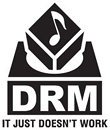Denuvo Anti-Cheat Optional in Sniper Elite: Resistance, DRM Protection Remains Mandatory
A happy owner of Sniper Elite: Resistance sent out a cheery message via the game's Steam discussion section—Denuvo Anti-Cheat seems to be an optional element when setting up Rebellion's latest tactical shooter. The user's public announcement read as follows: "I almost couldn't believe it when the setup dialog appeared...'Do you want to install Denuvo? YES or NO.' Now the drawback to skipping it is the fact that it's required for multi-player. But as a single campaign player myself, I was glad to have the choice to not install it. I wish more games would give us single players this option! For many a PC gamer, this sense of choice will be celebrated—at least on a surface level—as Irdeto's software is no stranger to controversy. Despite widespread deployment across many popular games and adding of "exciting new features," development teams and publishers have—on occasion—removed Denuvo protection systems from their products, even pre-launch.
Further community discussion—regarding Sniper Elite: Resistance's dropping of anti-tamper technology—focused on the benefits of not having a "kernel infesting, performance nerfing malware/spyware" package interfering with a gamer's solo experience. Unfortunately, Anti-Cheat seems to be an essential aspect for folks who want to indulge in multiplayer—be it co-op, invasion or a traditional PvP mode. Additional feedback points to Irdeto's digital rights management (DRM) system being a compulsory component. One commenter stated: "Denuvo is NOT optional, Resistance has two forms of Denuvo. The first kind it uses is Denuvo Anti-Tamper. This serves to protect the game from piracy, and validation of ownership...you can't get away from Denuvo Anti-Tamper, the game files are wrapped in it. The second kind is the Denuvo anti cheat, which is only needed for multiplayer. Every Sniper Elite game since no. 4 has used Denuvo Anti-Tamper, Resistance is no exception." Late last year, Irdeto staffers attempted to reach out to the gaming community, but responses were largely negative—a Denuvo product manager reckoned that most of this "toxicity" was generated by piracy groups. At the time, Irdeto's representative stated that his team's "solution simply works" and licensees (game developers) should do better in communicating these benefits (of Denuvo) to their audiences.
Further community discussion—regarding Sniper Elite: Resistance's dropping of anti-tamper technology—focused on the benefits of not having a "kernel infesting, performance nerfing malware/spyware" package interfering with a gamer's solo experience. Unfortunately, Anti-Cheat seems to be an essential aspect for folks who want to indulge in multiplayer—be it co-op, invasion or a traditional PvP mode. Additional feedback points to Irdeto's digital rights management (DRM) system being a compulsory component. One commenter stated: "Denuvo is NOT optional, Resistance has two forms of Denuvo. The first kind it uses is Denuvo Anti-Tamper. This serves to protect the game from piracy, and validation of ownership...you can't get away from Denuvo Anti-Tamper, the game files are wrapped in it. The second kind is the Denuvo anti cheat, which is only needed for multiplayer. Every Sniper Elite game since no. 4 has used Denuvo Anti-Tamper, Resistance is no exception." Late last year, Irdeto staffers attempted to reach out to the gaming community, but responses were largely negative—a Denuvo product manager reckoned that most of this "toxicity" was generated by piracy groups. At the time, Irdeto's representative stated that his team's "solution simply works" and licensees (game developers) should do better in communicating these benefits (of Denuvo) to their audiences.












